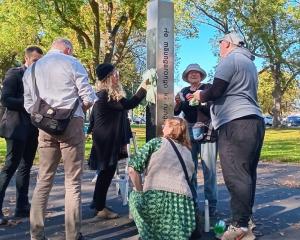Otago Community Hospice chief executive Ginny Green said the English decision about the Liverpool Care Pathway (LCP) after a critical report released this week has aroused interest in New Zealand.
''Our colleagues nationally in hospices and hospitals are in the process of reading the report thoroughly before deciding what approach we will take.
''Here in Otago, we will not be making any decisions until we have fully considered the report and consulted the Ministry [of Health] and Hospice New Zealand.''
The report criticised how the pathway worked in practice, not the programme itself.
Designed to transfer hospice care to other settings, the LCP is not just for cancer patients.
The Otago hospice employs a facilitator who is responsible for supporting health providers throughout Otago to implement LCP.
Ms Green believed LCP in New Zealand improved end-of-life care, aiding communication between family members and health staff.
''The success of the LCP is absolutely dependent on it being a guide, not a prescriptive document.
''Feedback from facilities using the pathway is positive and suggests an increased level of knowledge and skill around end-of-life care.''
Baroness Julia Neuberger's report found the pathway in England had in some cases become a ''tick box'' exercise, with stories of patients treated with less respect in their final days than they deserved. Many families in England had complained of deaths being unduly hastened by strong painkillers or sedatives.
Ms Green said the report highlighted the fact quality end-of-life care could ''never rely on pathways and procedures alone''.
''It depends on a compassionate culture of care where patients are treated as individuals, where staff are fully trained and supported, underpinned by effective communication between healthcare professionals, patients and their families.''
Ministry of Health cancer services manager Ricarda Vandervorst said in a statement the ministry was considering how the decision affected New Zealand.
''DHBs are responsible for monitoring the quality of end-of-life care for their populations and the ministry is not aware of issues in New Zealand similar to those raised in the UK review.''
LCP projects were registered in 19 of the 20 health boards, the Best Practice Advocacy Centre said on its website. As of 2011, LCP was used in 28% of the country's residential-care facilities.












